Tamara Amin
A Robot's Expressive Language Affects Human Strategy and Perceptions in a Competitive Game
Oct 24, 2019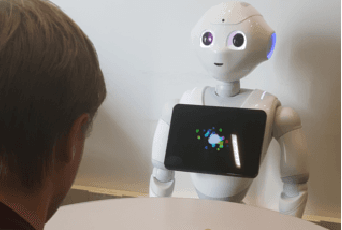
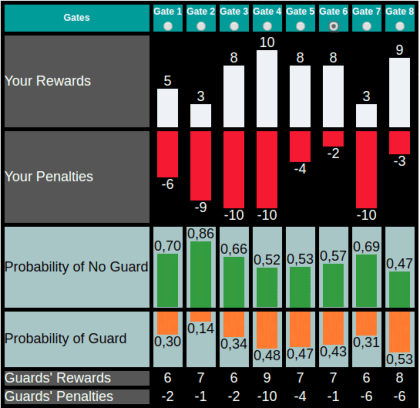
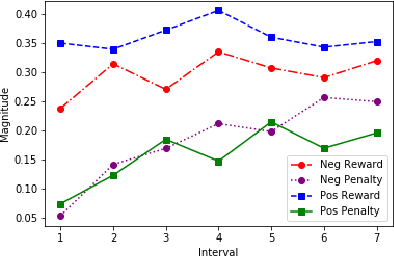

Abstract:As robots are increasingly endowed with social and communicative capabilities, they will interact with humans in more settings, both collaborative and competitive. We explore human-robot relationships in the context of a competitive Stackelberg Security Game. We vary humanoid robot expressive language (in the form of "encouraging" or "discouraging" verbal commentary) and measure the impact on participants' rationality, strategy prioritization, mood, and perceptions of the robot. We learn that a robot opponent that makes discouraging comments causes a human to play a game less rationally and to perceive the robot more negatively. We also contribute a simple open source Natural Language Processing framework for generating expressive sentences, which was used to generate the speech of our autonomous social robot.
* RO-MAN 2019; 8 pages, 4 figures, 1 table
The Impact of Humanoid Affect Expression on Human Behavior in a Game-Theoretic Setting
Jun 10, 2018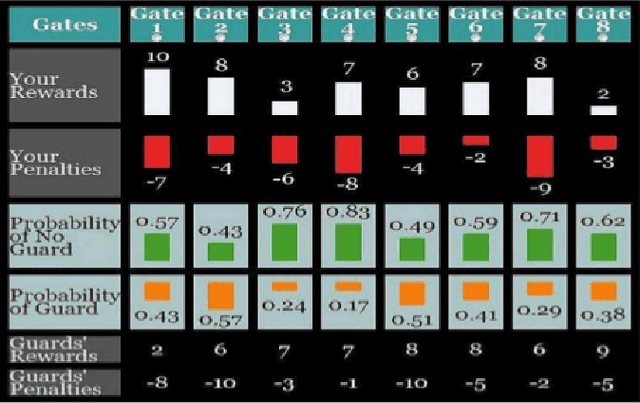
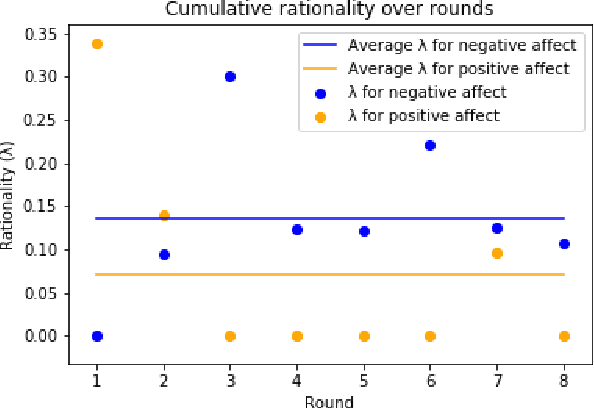
Abstract:With the rapid development of robot and other intelligent and autonomous agents, how a human could be influenced by a robot's expressed mood when making decisions becomes a crucial question in human-robot interaction. In this pilot study, we investigate (1) in what way a robot can express a certain mood to influence a human's decision making behavioral model; (2) how and to what extent the human will be influenced in a game theoretic setting. More specifically, we create an NLP model to generate sentences that adhere to a specific affective expression profile. We use these sentences for a humanoid robot as it plays a Stackelberg security game against a human. We investigate the behavioral model of the human player.
 Add to Chrome
Add to Chrome Add to Firefox
Add to Firefox Add to Edge
Add to Edge